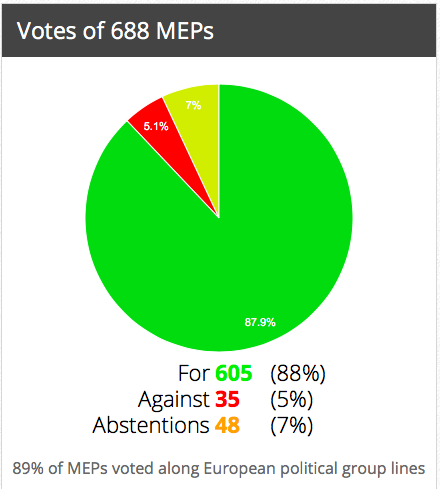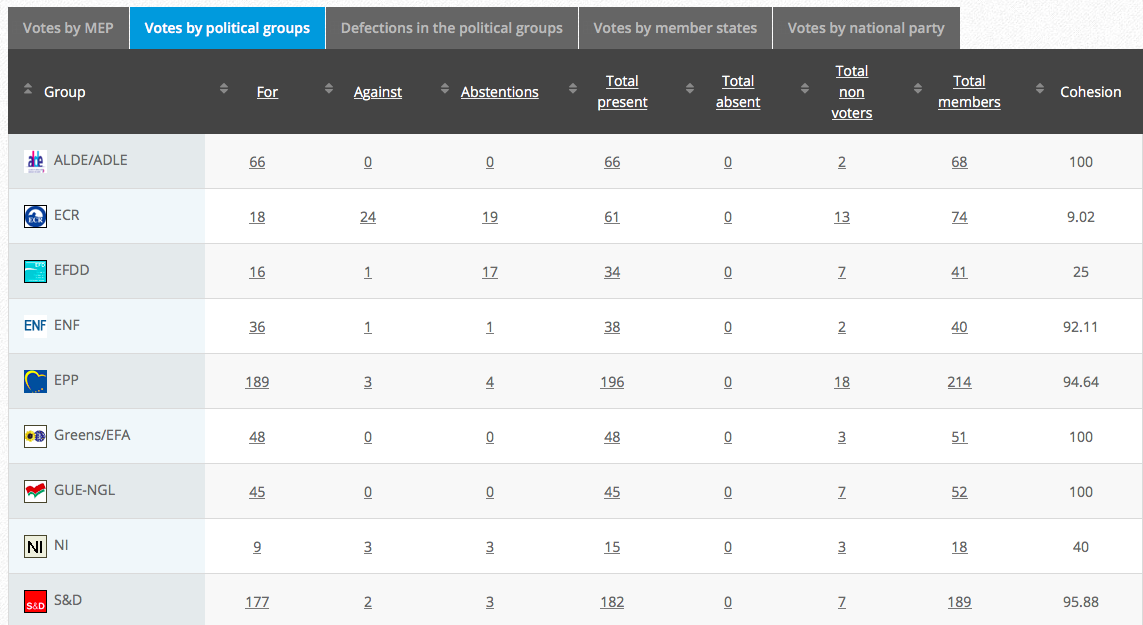Use Data and not hunches
In Ray Dallio’s “Principles” he talks about the use of data and computers to enhance good decisions. It is something that I think political campaigners and lobbyists should try.
Today, it is not used much in lobbying and political campaigning. People prefer hunches, intuition or what I suspect, too often, making it up on the fly.
The tools exist. For a long while I have used the data flow from EUVotewatch. On one of most successful political campaigns the data gleamed from previous similar votes was a vital tool in designing a winning campaign.
Look at the trends
A word of warning. Historical data does not predict future votes of politicians. It is a useful indicator, but politicians are not robots. Events shape their decisions, and they change their minds.
It helps to understand the context of the vote and the events surrounding a vote. They are vital indicators. Shaping the events and the thinking on the vote is vital.
We are not in a realm of plug in the data and predict the result. There are though vital trends that can be learned.
97% of laws made this way and most people ignore it
The area I have most used EU Vote Watch is for comitology.
I have, what my friends tell me, is an unhealthy interest in comitology/ delegated legislation. I have had the interest for more than 20 years. I enjoy it because it accounts for about 97% or more EU legislation and very few people in Brussels are interested in it.
I looked at last week’s vote in the European Parliament against proposed scientific criteria put forward for the determination of endocrine disrupting properties in pesticides. It is a file I have worked on for a long time and work on today.
Getting a challenge through the EP is always tough. Securing 376 votes is a deliberately high hurdle.
The Green/Social Democrat motion passed. It got through with 389 for, 235 against, and 70 abstained.
Why did they succeed?
But, the real question is why get this many votes.
What was very smart about this challenge is how the proposers played it. There was little discussion about the about endocrine disruptors. Instead, the objection was framed to what really concerns MEPs, namely “Parliamentary privilege the rule of law and the Commission exceeding the law”.
Listening to Bas Eeckhout MEP (Greens/Netherlands) explain his case was tantamount to getting a condensed lecture from the late Tom Bighmam on the Rule of Law.
This must have head the NGOs, who had crusaded on the public health issue, gnashing at the teeth.
But, it was the right call, and the figures prove it.
A roll call vote on Recital P “P. whereas, in accordance with long-standing case law, the adoption of regulatory elements that are essential to a given matter is reserved to the EU legislature and may not be delegated to the Commission” went through.
This went through with overwhelming support.
It went through with support from most of the groups, except the ECR, who were split.
Parliaments throughout Europe have been in struggle against the Executive for centuries. They guard their hard won privileges. They have been battling against the Council and Commission on delegated legislation since 1979.
The data show most politicians have this DNA built into them. The substantive issues of the rule of law and protection of Parliament’s privileges are more important than the technical issue at hand.
This is the vital lesson on what really counts.

